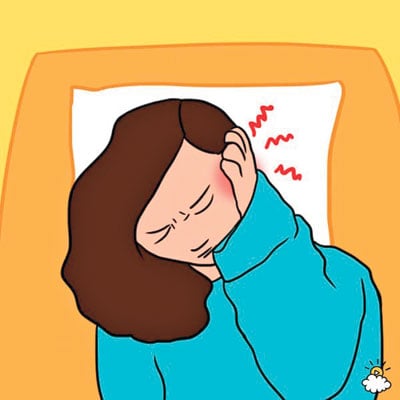Pains that come on suddenly and linger on longer than usual, call for immediate medical attention. You! takes a look...
health
Pains that come on suddenly and linger on longer than usual, call for immediate medical attention. You! takes a look...
There are certain aches that your body might have gotten used to - for instance a headache is just a normal headache, and heartburn is nothing more than a sign that you ate too much fast-food. More often than not, you have some idea of what is the reason behind the pain. The fact is that you can’t let every ache, soreness or twinge worry you to the extent that you rush to the doctor. But there are pains that come on suddenly, linger on longer than usual, or just seem different, beware as that could indicate a health emergency and immediate medical attention is required -the sooner, the better. According to experts, all of the following pain conditions should be considered red flags and one should consult a qualified doctor as soon as possible. Read on to find out more...
Chest pain
Studies have found that women experience a wider range of heart attack symptoms than men do. There are three good indicators that clearly show that something isn’t right. The signs include chest pain that doesn’t go away, varied shortness of breath, and any upper body pain that hasn’t occurred before. If you experience any of these symptoms, you should call your doctor or visit a nearby hospital without delay.
Severe headache
Chances are, it is a migraine. But if it isn’t accompanied by other migraine symptoms (such as a visual aura), sudden, severe headache can signal a brain aneurysm. A burst aneurysm can cause brain damage within minutes, so you need to go to the doctor immediately.
A throbbing tooth
Suffering from toothache? It is likely that the tooth’s nerve has become damaged, probably because the surrounding pearly white enamel is cracked or rotting away. Unless you get it patched up quickly, bacteria in your mouth can invade the nerve. And you definitely don’t want that breeding colony to spread throughout your body.
If your tooth is already infected, you will require a root canal, in which the tooth’s bacteria-laden pulp is removed and replaced with plastic caulking material.
Sharp pain in your side
If you feel as if you are being skewered in your right side, feel nauseated and also have a fever, you could have appendicitis. For women, another possibility is an ovarian cyst. Typically these fluid-filled sacs are harmless and disappear on their own. But if one twists or ruptures, it can cause terrible pain. In both the cases, you are looking at emergency surgery. If you don’t remove an inflamed appendix, it can burst. A twisted cyst also needs to be removed right away, as it can block blood flow to the ovary within hours.
Abdominal discomfort
Have you been experiencing a gassy and bloated feeling? Does it take fewer slices of pizza to fill you up than it once did? Well, it is time to rush to the doctor as your symptoms might be leading to ovarian cancer. The early symptoms of Gynecologic form of cancer are bloating, pelvic or abdominal pain, and difficulty eating. If you start experiencing them almost daily for more than two or three weeks, consider it a red flag. Schedule an appointment with your ob-gyn to discuss your symptoms.
Backache with tingling toes
If your back hurts and you feel your toes get numb then it is a sign that one of your discs (the spongy rings that cushion the bones in your spine) could be pressing on the spinal nerve. Without proper attention, you can risk permanent nerve damage. Don’t ignore these symptoms and consult a doctor as soon as possible.
Calf pain with swelling
If your calf is extremely tender in one location, noticeably swollen, and red or warm to the touch. You might have deep-vein thrombosis (DVT), commonly known as a blood clot. Try not to massage the area or walking off the pain. If the clot breaks free, it can travel through your veins up to your lungs and cut off your oxygen supply. Instead, see your doctor right away. He or she will need to do a CT scan or ultrasound to check for a DVT. If that is what you have, you will need to take blood thinners - sometimes for up to a year - to dissolve it.
If you don’t move much and sit a lot, you are more likely to get DVTs. If you are over 60, pregnant, obese, or have varicose veins, you are at higher risk, too.